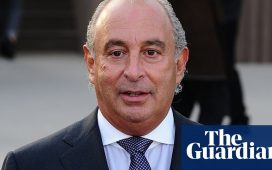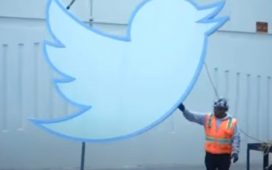Unlock the Editor’s Digest for free
Roula Khalaf, Editor of the FT, selects her favourite stories in this weekly newsletter.
The UK competition watchdog is investigating British television groups such as the BBC, ITV and Hat Trick Productions over a suspected infringement over the use of freelance workers to make and broadcast their shows.
The Competition and Markets Authority on Thursday said the investigation would look at the purchase of services from freelance providers, and the employment of staff, “who support the production, creation and/or broadcasting of television content in the UK, excluding sport content”.
The regulator said it had reasonable grounds to suspect one or more breaches of competition law but had not reached a view “as to whether there is sufficient evidence of an infringement of competition law for it to issue a statement of objections to any party or parties”.
The CMA in 2022 launched a similar probe into possible cartel-like behaviour by broadcasters including BT Group, ITV, Sky and IMG Media over the purchase of freelance services for the production and broadcasting of sports content in the UK. The probe is still ongoing.
ITV said it had “received a case initiation notice from the CMA” and would comply with competition law and co-operate with the regulator’s inquiries.
A BBC spokesperson said: “The BBC notes the Competition and Markets Authority’s (CMA) announcement and will fully cooperate with the CMA’s inquiries.” Hat Trick did not immediately respond to a request for comment.
Other companies under investigation include Hartswood Films, Red Planet Pictures, Sister Pictures and Tiger Aspect Productions.
The probe is expected to look at pay and conditions being offered to freelance workers, and whether there is any cartel-like behaviour between broadcasters in areas such as setting the level of wages, according to one person familiar with the situation.
The majority of staff who work on TV shows tend to do so on a freelance basis, which means they can work across a spread of production companies on a regular basis on different shows.
The investigation is expected to look at the pay being offered to highly skilled roles, such as camera operators and sound engineers, and examine if there is any evidence that broadcasters have fixed rates.
TV executives admit that there tends to be a “going rate” for many such jobs, but the competition authority will want to see whether there is any overt or tacit collusion to keep wages at certain levels.
Freelance production staff have complained that broadcasters tend to pay similar rates, with any increases not necessarily reflecting inflation or the increase in the cost of living.
The investigation comes during a squeeze on productions of TV and films in the UK, with some broadcasters cutting budgets given their own financial difficulties and others affected by the strikes of writers and actors in the US.










